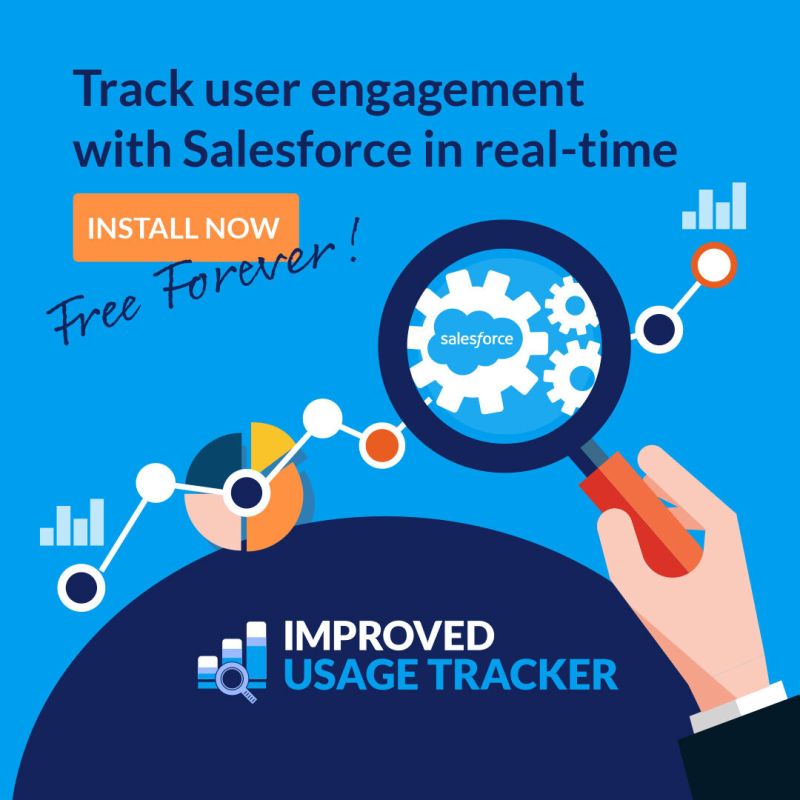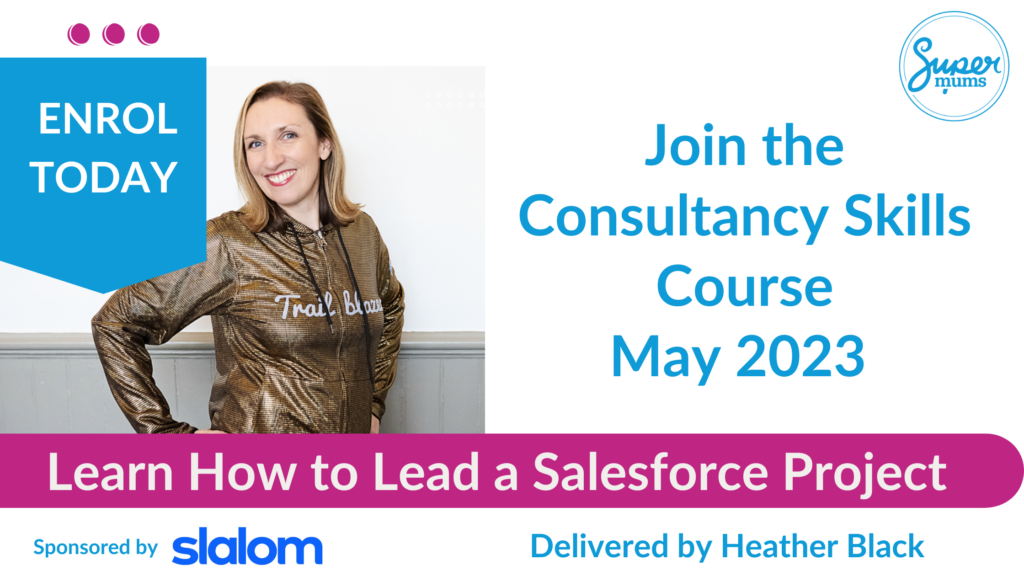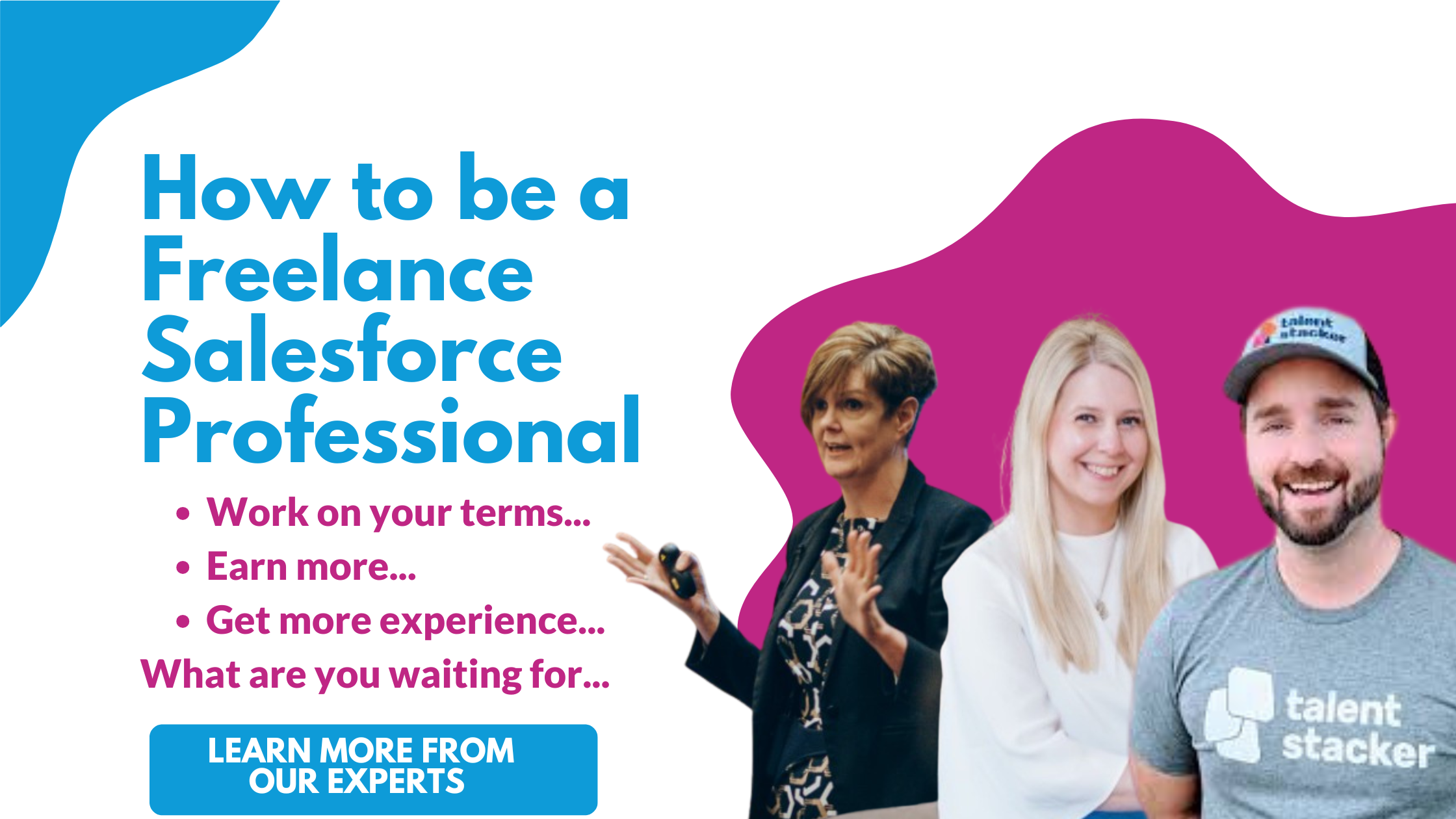Business Analysis Skills for Salesforce Sales Cloud
By Heather Black

Understand business analysis techniques, skills and the questions you should ask when deploying Sales Cloud with our latest blog from Supermums CEO & Founder, Heather Black.
Join Heather as she shares top tips on Business Analysis techniques more generically and then focussing in on a specific cloud. Sign up to our Weekly Career Boost Bulletin to be notified of each release.
Over the next 4 weeks, Heather will be sharing top tips on:
- Part 1 – We are giving an introduction to Business Analysis and Sales Cloud
- Part 2 – We are looking at the Business Analysis process and Service Cloud
- Part 3 – We are looking at how to build a demo and Non Profit Cloud
- Part 4 – We are looking at Business Analysis documentation and E-Marketing
At Supermums we deliver the Consultancy Skills Course to upskill individuals on Business Analysis, Change Management and Agile Project Management so these skills can be blended and delivered holistically. These skills really are inter-dependent and essential to each other to deliver a project successfully.
Heather Black is the lead trainer on this course and she has overseen over 700 Salesforce projects whilst running a Salesforce Consultancy for 9 years. During this time she developed a suite of templates and tools to standardise the questions asked on projects to maximise the chance of success of a project and avoid the risk of a question not being asked. Find out more about the Course here.
Introduction to Business Analysis
In our latest LinkedIn Poll, 43% voted poor Business Analysis as the biggest risk to Salesforce projects and this concern is echoed within industry reports too. It’s why Salesforce introduced the Business Analyst Certification as they realised it was such a core skill for any Salesforce Professional.
Business Analysis isn’t a stand alone discipline however, it’s layered with Agile Project Management and Change Management Skills to really be effective.
When the Business Analysis workshops uncover hundreds of requirements, you need to know how to prioritise these with the customers using Agile Project Management. Prioritisation is aligned to knowing the pressing business priorities and ROI expectations.
The stakeholders should be engaged, enthused and empowered during the implementation cycle – embedding the appropriate change management approach during the business analysis is key to generating buy-in during the design period and training workshops.
The four principles of Business Analysis can be summarised nicely by The Popit Decision Making Model:
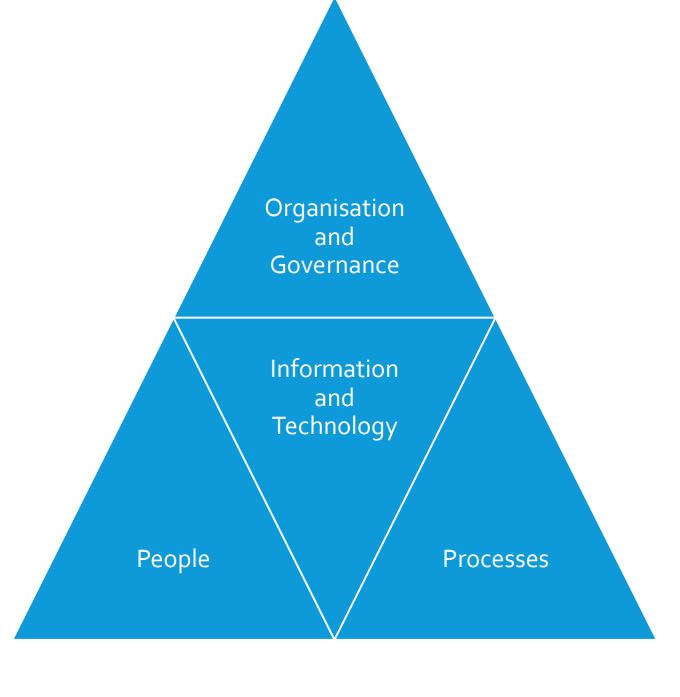
- People: Assess the skills and needs of the stakeholders involved. What are their needs, pain points and aspirations.
- Organisation: Assess the business, it’s strategy, it’s culture and what it is striving to achieve.
- Processes: Assess the current state of the processes and determine the aspirations for improving and refining processes to meet the needs of the people and the organisation. Information
- Technology: Assess the current technology use alongside future needs based on the people, organisation and processes to determine the best solutions to meet their needs.
What Questions do you want to ask about Sales Cloud ?
The Sales Cloud Discovery process could include a whole range of aspects including the following high level requirements:
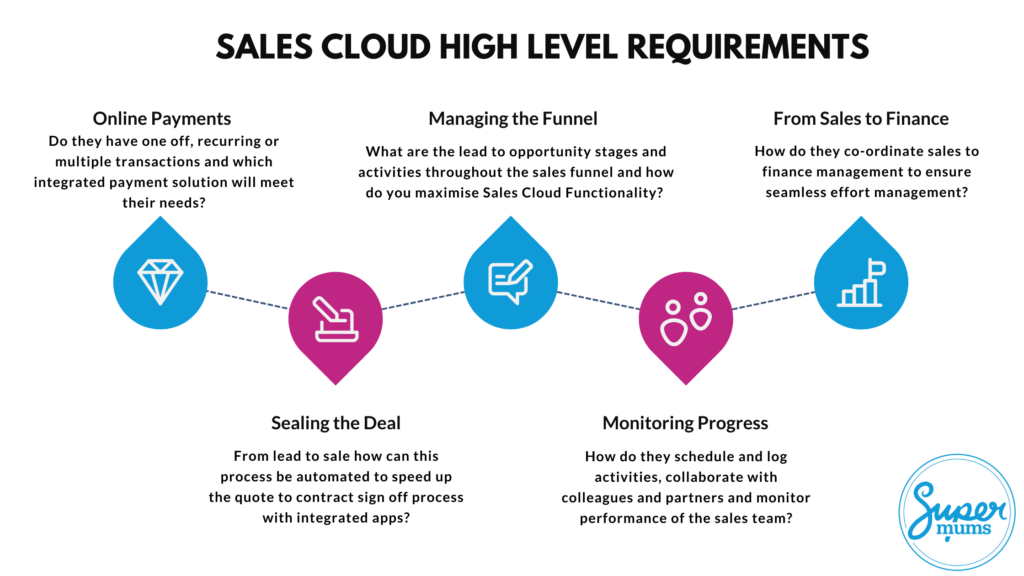
Within the Supermums Consultancy Skills Skills Course, sponsored by Slalom, we provide a full Business Analysis Questionnaire for Sales Cloud , Online Payments, and Non-Functional requirements with a presentation deck and a training session on how to deliver it alongside the technical considerations. If you are worried about what questions to ask then check out our course here.
Here are 5 of favourite questions you don’t want to miss but there are loads more functional and non-functional requirement questions that you want to include in your questionnaire.
- What are their different products, services and customers, are their multiple sales teams and where are their teams and customers located globally? This will influence how many different project life cycles you will need to deliver e.g. multiple discovery workshops through to training sessions and also whether global influences are relevant such as languages and currency considerations.
- What are the pain points and key benefits they want to derive from Salesforce as a Sales Team from different points of view – as an organisation, a team and individually?
- How would the company measure the ROI of the Salesforce investment and how can this be measured? What are the baseline stats now and what do they want it to be in the future. It can be useful to have some example indicators here to share in case they aren’t sure.. For example, increase in conversion time, increase in repeat customers, increase in conversion of leads funnel, increase in lead rating ratio, increase in calls booked.
- How is Sales Performance measured? What are their key reports and dashboard requirements as they will influence how you build the system. Again it can be useful to have some example indicators here to share in case they aren’t sure. e.g. no of calls booked per week, no of converted leads, value of closed deals, no of deals in the pipeline, against targets.
- What is their Sales Process? Within this there will be multiple functional questions and technical considerations to ask, especially to discover whether the Sales Cloud functionality needs extending to integrate with third party apps to integrate online payments, e-signature contracts or reconcile with accounting software. This will inevitable increase time and budget for any project.
Assess their current usage of Sales Cloud
If the customer is currently using Salesforce then you want to assess the current usage of the Sales Cloud product – with this you are reviewing the product features being used, assessing user adoption, and level of data input and integrity . You can discover this through your BA process by asking the questions in our FREE Health Check Questionnaire and Template and to aid this you can also plug in these two FREE apps and get instant insight into how they are using the product.
Be Knowledgeable in the Product and Third Party Apps
- Complete your Sales Cloud Training and Certification in Advance
- Build a Demo so you are proficient in knowing how the product works
- Understand the Third Party Apps that can add value to the Sales Cloud. Here are some great ISV apps you should know about.
Written By:
Subscribe To Our Weekly Top Tip Bulletin
Get Updates And Learn From The Best


